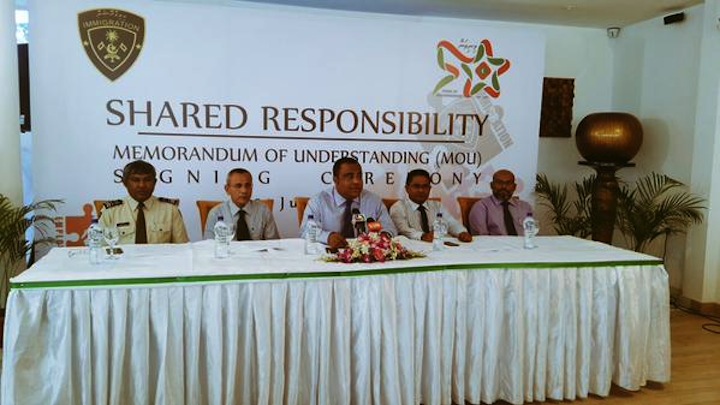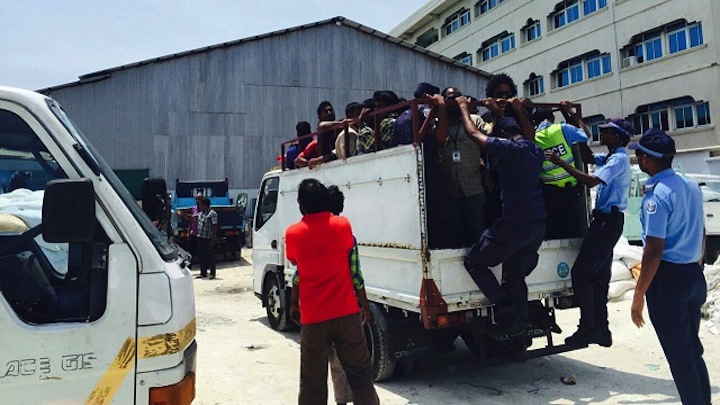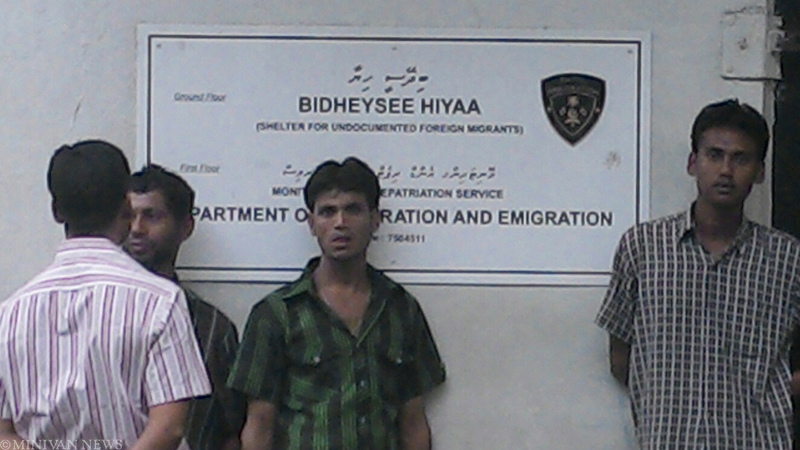The migrant worker population of the Maldives exceeds 124,000, the department of immigration has revealed. The figure includes 94,492 registered expatriates and more than 30,000 undocumented workers.
Controller of immigration Mohamed Anwar told the press on Monday that the department’s main focus at present is strengthening the labour migration system.
The department signed Memoranda of Understanding with four companies this week for deporting undocumented workers.
Under the “shared responsibility” programme, Amin Construction, Ensis Fisheries, Hotels and Resorts Construction, and the China Machinery Engineering Corporation agreed to hire undocumented workers for projects, after which they would be deported.
A government report in 2011 revealed human trafficking to be the Maldives second most lucrative industry after tourism – worth an estimated US$123 million a year.
The US state department said foreign workers in the Maldives experience forced labor, including fraudulent recruitment, confiscation of identity and travel documents, withholding or nonpayment of wages, and debt bondage.
The government last month launched a five year strategic action plan to prevent human trafficking in Maldives, but the ministry of economic development did not disclose details of the plan.
The immigration department has deported more than 2,000 foreign workers so far this year, including 1,401 under a voluntary departure programme and 101 workers deported due to criminal offences.
Some 427 undocumented workers were deported after their arrest in various operations while 56 expatriates unfit for working due to poor heath were denied entry.
The majority of migrant workers in the country work in the construction industry.
Anwar said the Maldives needed foreign labour as the country lacked a large workforce. The department’s task was “managing” the influx of migrant workers, he added.
Last month, the immigration department instructed local businesses to send back migrant workers hired as photographers and cashiers before June 7 and apply for cancellation of employment approvals. The department warned that employers who do not comply will be penalised.
Deputy controller of immigration Abdulla Algeen said at Monday’s press conference that 95 percent of migrant workers enter the Maldives legally, but became “irregular” due to the fault of both sponsors and the employees themselves, who often “flee.”
A performance audit of the immigration department released last month noted that the absence of effective enforcement measures prior to 2014, after which the department “started conducting frequent investigations and they have strengthened their enforcement measures such as levying a fine on employers violating the regulations.”
The 2014 census recorded only 58,683 expatriates were residing in the Maldives. The department of national planning had said the figure was much lower than numbers recorded by the immigration department.
NGO Transparency Maldives (TM) estimates there are 200,000 migrant workers in the Maldives – two-thirds of the country’s 341,256 local population.


